Alright, folks, let’s dive into the age-old dilemma of Google vs Facebook Paid Advertisement. It’s a real head-scratcher, isn’t it? Figuring out which one suits your business like a glove depends on a bunch of factors. We’re talking about how much moolah you’re ready to shell out for conversion and how much time and manpower you have to handle those ad campaigns.
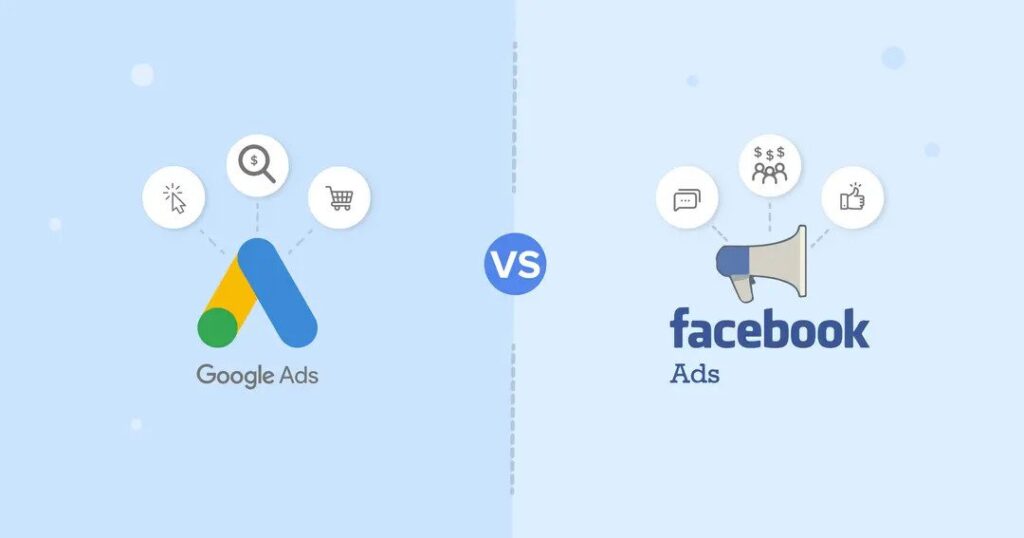
What are Google Ads?
let’s talk about Google Ads first, the cool kid on the advertising block. It used to go by the name Google AdWords, but let’s not dwell on the past. Here’s the deal: Google Ads is all about pay-per-click (PPC) advertising, where businesses pay to have their ads shown. You can spot these ads in the search results when you’re browsing on good ol’ google.com, or they might pop up on other websites through Google’s Search Partners or Display Network.
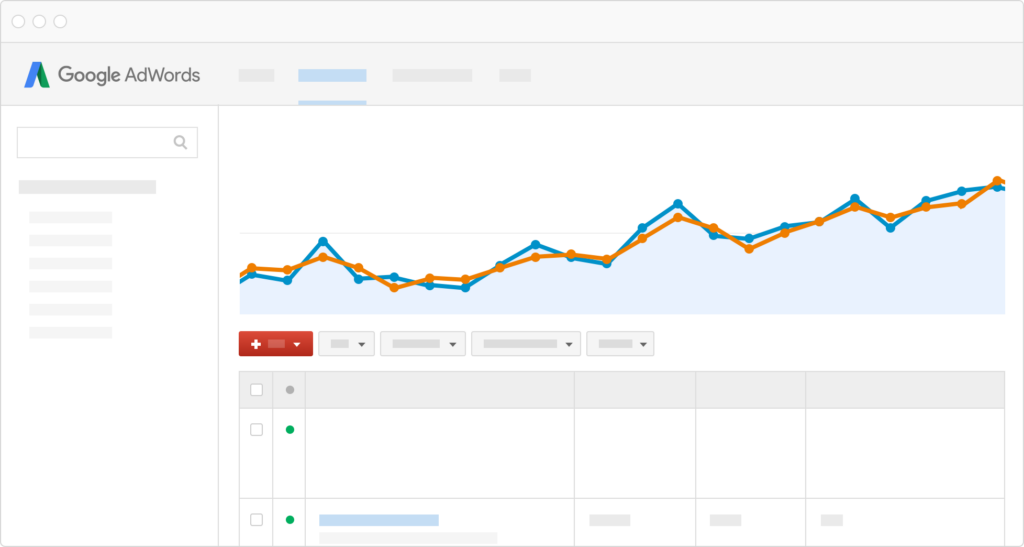
Now, the real magic happens in the Search Network. This is where advertisers get to show off their ads to folks who are actively looking for stuff that their business offers. The secret sauce? Keywords! You pick out relevant keywords related to your product or biz, and when a user searches for something related to those keywords, boom! Your ad appears on the search engine results pages (SERPs) like a superstar.
Here’s the catch, though: whenever someone clicks on your ad, you gotta shell out some dough. That’s why they call it “pay-per-click” advertising. You set a “Max CPC” for each keyword, which tells Google how much you’re willing to fork over for someone to click on your ad.
All in all, the name of the game with Google Ads is to drive new or existing customers to your website. You want those peeps who are actively searching for the very thing you’re offering. It’s like sending out a bat signal for your business.
When it comes to audience reach, Google and Facebook both have their own superpowers. Google swoops in with its mighty search engine, capturing users actively searching for products or services. On the other hand, Facebook brings its social magic, connecting people based on interests, demographics, and cat memes.
What are Facebook Ads
Alright, now let’s move on to the big kahuna of social media advertising: Facebook Ads. These babies are the paid ads that show up on, you guessed it, Facebook itself. Facebook Ads can appear in a number of different places, such as:
- Facebook Newsfeed
- Instagram Newsfeed
- Facebook Marketplace
- Video Feeds
- Right-hand column
- Messenger inbox
But for today’s discussion, we’re gonna focus on the Facebook Newsfeed placements because that’s where the real action happens. That’s where most of Facebook’s ad business goes down.
Facebook has become a battleground for businesses, my friends. It’s super competitive out there. With the largest number of monthly active users of any social media platform, it’s like a goldmine for all sorts of companies looking to advertise their stuff.
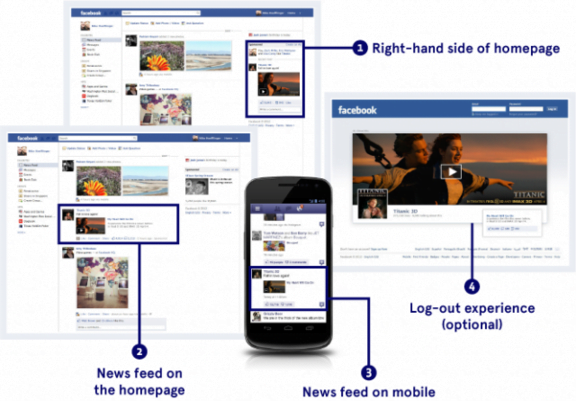
Now, here’s the deal: while Google Ads cater to active user intent, Facebook Ads take a more chill approach. You won’t find them targeting users who are actively searching for something specific. Instead, these sneaky ads will pop up right in the Newsfeed of users, trying to catch their attention when they’re just scrolling and chilling. It’s like they’re saying, “Hey, buddy, check this out while you’re casually browsing!”
Advantages of Google Ads
Is Google Ads worth it? Absolutely! Here’s why: Google helps you find new customers in ways Facebook can’t. It’s like a matchmaker for your business, showing your ads to people actively searching for what you offer. It’s a secret weapon in your marketing arsenal. Trust me, it delivers.
Potential Audience Reach
When it comes to advertising platforms, Google takes the crown for having the biggest audience ever. We’re talking about a mind-boggling number here. Brace yourselves: Google controls a little more than 92% of the search engine market share worldwide. That’s like a gazillion searches in a year, around 2 trillion, to be precise. Imagine the crowd you can reach with that!
So, if you’re cool with reaching a massive audience without diving too deep into the nitty-gritty details, Google Ads is your go-to buddy. It’s like being at a wild party where everyone’s invited, but you can only ask a few basic questions to get to know the guests. Still, a party’s a party, right?
Wide Range of Ad Formats
Ads have been getting bigger and better as time goes on. And you know what that means? Yup, more ad formats for all you advertisers out there to sink your teeth into.
But wait, there’s more! It’s not just about the ad formats themselves. Oh no, no, no! Google Ads wants to make sure you’ve got all the bells and whistles you need to drive that sweet, sweet traffic to your business. So they throw in a bunch of fancy add-ons like site link extensions, location extensions, price extensions, call extensions, and a whole lot more
Ad Format Options:
- Text Ads
- Responsive Search Ads
- Image Ads
- Responsive Display Ads
- App Promotion Ads
- Video Ads
- Product Listing Ads (Commonly known as PLA or Shopping Ads)
- Showcase Shopping Ads
- Call-Only Ads
Advertiser Equality
There’s a common misconception out there that you need a fat stack of cash to stand a chance on Google. Well, guess what? That’s a load of baloney! Let us break it down for you with Google Ads’ little secret: the auction system.
- Quality of Ad
- Is your ad relevant and useful?
- Expected Impact of Ad
- Use of extensions
- Keyword Bid
- The maximum amount you are willing to pay for a click on your ad
See? It’s not about the size of your bank account; it’s about the smarts and creativity you bring to the table. So go on, give it your best shot, and show Google what you’re made of!
Advantages of Facebook Ads
Let us give you the scoop on Facebook Ads. Picture this: back in 2007, Facebook was like, “Hey, we’ve got something special for all you advertisers out there!” And boy, did they deliver!
It’s not just about the targeting. Nope, nope, nope! Facebook Ads offers a bunch of other advantages that you should know about before you make your big decision. I won’t spoil all the fun, though. You’ll have to dive in and discover them for yourself.

Audience Targeting
Get this: there are more than a whopping 2.98 billion people hanging out on Facebook every month. And you know what’s even crazier? That number keeps climbing higher and higher, like a squirrel on a sugar rush.
It’s common knowledge that Facebook users share a lot of their lives online (such as weddings, children, new careers, and more). They also look for and engage with content related to their personal interests, like businesses they like, products, ideas, or services. All of this information is available to advertisers, who can use it to find their ideal audience by narrowing down their search to a specific group of people on Facebook based on their interests.
One of the well-known options on Facebook is called “lookalike audiences.” This feature allows advertisers to give Facebook information about their current customers, and Facebook can then create a similar audience of people who have similar interests and buying habits. This new list helps advertisers reach potential new users who have similar preferences and behaviors as their existing customers. It may sound a bit unsettling, doesn’t it?
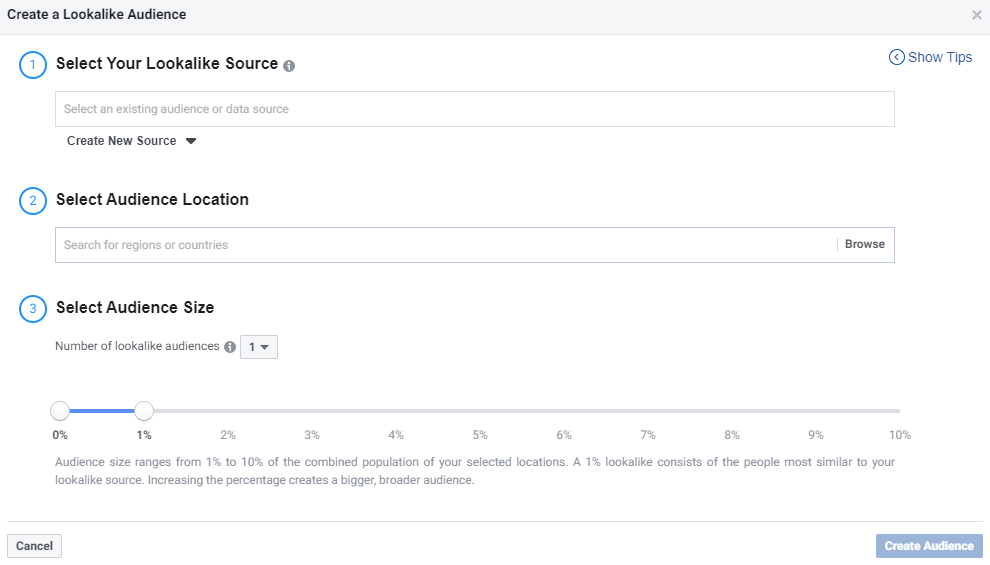
Strong ROI on Limited Budgets
Facebook is famous not only for reaching a large audience but also for being one of the most affordable advertising platforms nowadays.
When we compare the cost of advertising on Google and Facebook, Facebook tends to have lower CPCs (Cost Per Click) by about 56%, on average, depending on the industry and location. Although the click-through rate (CTR) on Facebook is generally lower compared to Google, the conversion rate is significantly higher, around 9-10% on Facebook, while Google is around 3.75%.
This affordable and high return on investment (ROI) approach makes Facebook a great choice for small businesses with limited advertising budgets who want to make the most out of their money.
Visual Ads
One big benefit of Facebook Ads over Google Ads is how the ads are designed to fit right in with the rest of the content on Facebook. Unlike Google’s text ads, Facebook Ads are more visual and seamlessly integrated into the platform.
The best Facebook Ads are designed to blend in with the user’s Newsfeed, where they see videos, images, and other content as they scroll through their daily updates. This integration lets advertisers display high-quality videos and images as “sponsored” content without disturbing the flow of information.
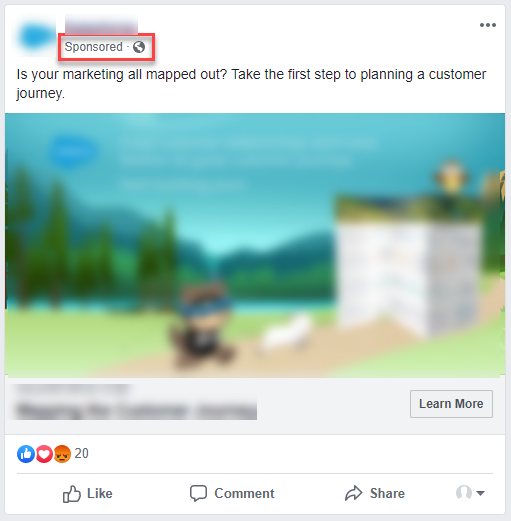
Google vs Facebook Paid Advertisement: Which One Should You Use?
The best advice is to see these two powerful platforms as working together instead of competing against each other. Using Paid Search and Paid Social together is a highly effective and well-rounded marketing strategy that can greatly impact your business’s return on investment.
Ultimately, the decision depends on your business goals and what you aim to achieve. If your main priority is reaching new customers who are ready to make a purchase, Google Ads might be a better choice. On the other hand, if your main focus is building brand awareness and creating a strong audience, Facebook can help you achieve that at a lower cost compared to Google. Interested in PPC, Paid Social, or both, but not sure how to get started? Hit us up & Dymention’s PPC & Paid Social team would love to chat with ya!

